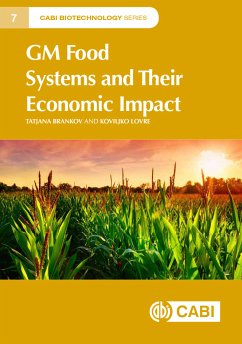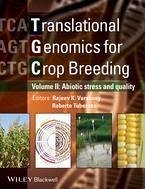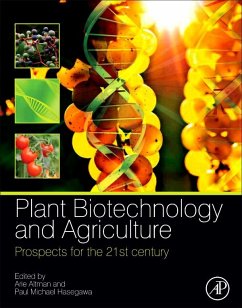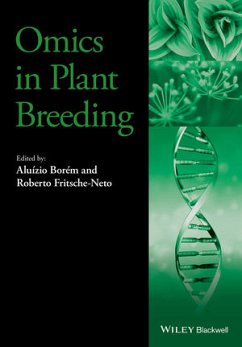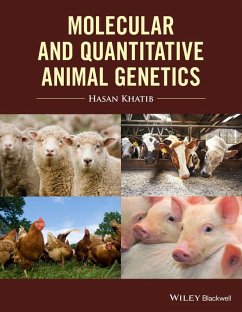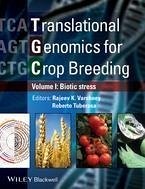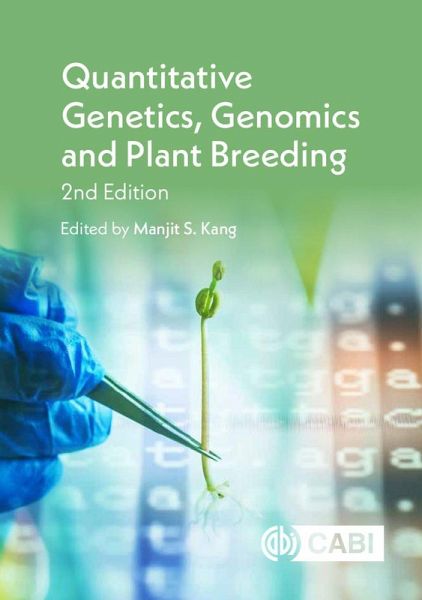
Quantitative Genetics, Genomics and Plant Breeding (eBook, ePUB)
Versandkostenfrei!
Sofort per Download lieferbar
140,95 €
inkl. MwSt.
Weitere Ausgaben:

PAYBACK Punkte
70 °P sammeln!
Since the first edition of this book was published in 2002, the field of quantitative genetics, genomics and breeding has changed markedly. In response, only four chapters have been updated for this new edition, and the remaining 16 chapters are entirely new. This book presents state-of-the-art, authoritative chapters on contemporary issues in the broad areas of quantitative genetics, genomics and plant breeding. Section 1 (Chapters 2 to 12) emphasizes the application of genomics, and genome and epigenome editing techniques, in plant breeding; bioinformatics; quantitative trait loci mapping; a...
Since the first edition of this book was published in 2002, the field of quantitative genetics, genomics and breeding has changed markedly. In response, only four chapters have been updated for this new edition, and the remaining 16 chapters are entirely new. This book presents state-of-the-art, authoritative chapters on contemporary issues in the broad areas of quantitative genetics, genomics and plant breeding. Section 1 (Chapters 2 to 12) emphasizes the application of genomics, and genome and epigenome editing techniques, in plant breeding; bioinformatics; quantitative trait loci mapping; and the latest approaches of examining and exploiting genotype-environment interactions. Section 2 (Chapters 13 to 20) represents the intersection of breeding, genetics and genomics. This section describes the use of cutting-edge molecular breeding and quantitative genetics techniques in wheat, rice, maize, root and tuber crops and pearl millet. Overall, the book focuses on using genomic information to help evaluate traits that can combat biotic/abiotic stresses, genome-wide association mapping, high-throughput genotyping/phenotyping, biofortification, use of big data, orphan crops, and gene editing techniques. The examples featured are taken from across crop science research and cover a wide geographical base. This book contains: chapters by expert authors from six continents; state-of-the-art information on topical areas relative to crop improvement; coverage of genome-editing techniques.
Dieser Download kann aus rechtlichen Gründen nur mit Rechnungsadresse in A, D ausgeliefert werden.






